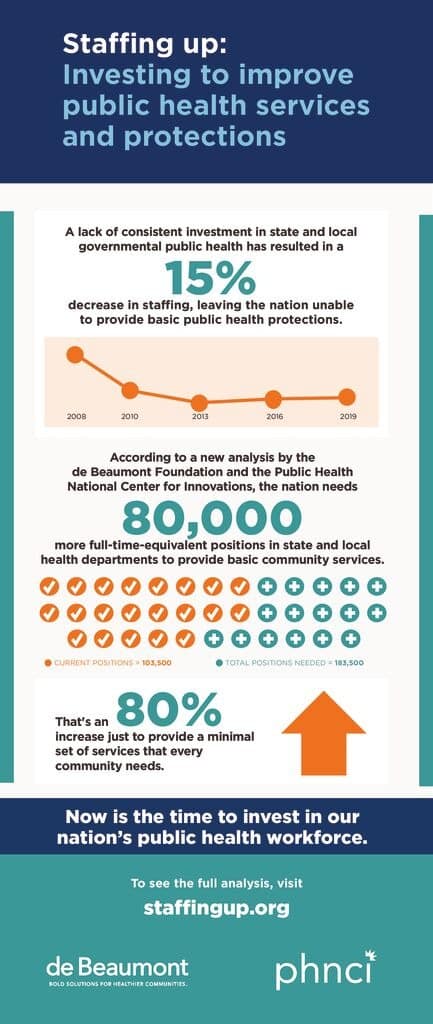
The brief documents the staffing gap that’s been created by years of budget cuts to state and local health departments, including the loss of 15% of their essential staff over the past decade. These cuts have hindering the ability of health departments to address community health challenges and be prepared for emergencies. The additional 80,000 positions that are needed would only provide adequate infrastructure and a minimum package of public health services.
“This estimate is an important starting point for the national discussion we need to have about the value of public health, prevention, and preparedness,” said Brian C. Castrucci, DrPH, president and CEO of the de Beaumont Foundation. “Increasing the workforce by approximately 80% is a relatively small investment to ensure that every community has basic public health services.”
Paul Kuehnert, DNP, RN, FAAN, president and CEO of the Public Health Accreditation Board, added, “For years, a disinvestment in public health departments has led to a crumbling public health infrastructure, lack of modern data systems, and an inability for health departments to equitably provide necessary services to their communities. We now have the data we need to build support and fund health departments to perform their critical roles in protecting the health of all communities.”
See the members of the steering committee and research advisory committee who contributed to this analysis at staffingup.org.
Download the complete research brief.




